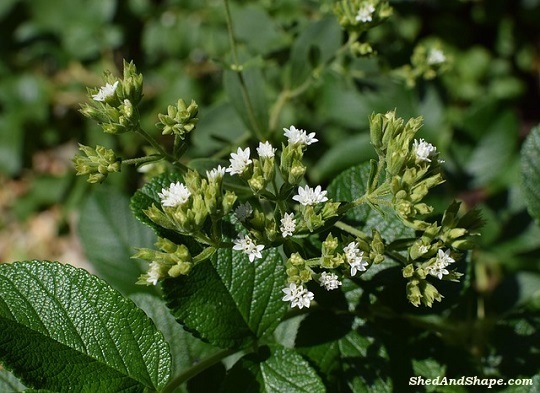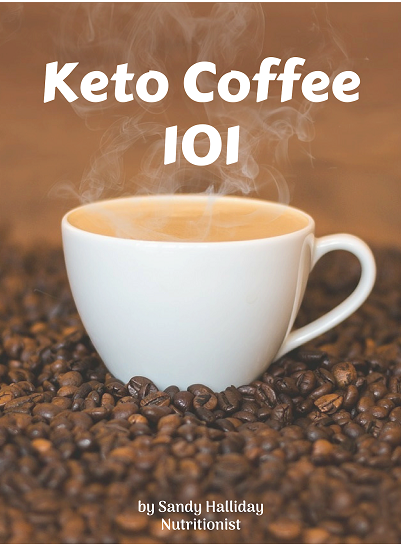If you have a sweet tooth, giving up sugar for your low carb diet is a real struggle. Thankfully, there are natural low carb sweeteners that you can use instead. You can use any of these sweeteners for your morning coffee or for just about any food that you want, as long as it’s within your net carb limit. People who have very low net carb limit, such as those who are in the initial stage of their keto diet, should opt for zero carb sweeteners.
Here are the 4 best natural, low carb sweeteners.
1. Monk Fruit
Monk fruit belongs to the gourd family and is native to northern Thailand and China. Also known as the longevity fruit, it’s said to be 300 times sweeter than sugar and is commonly used in various Chinese medicines in treating diabetes and obesity. Monk fruit is as sweet as Stevia, however, it does not have the bitter aftertaste that’s common in most stevia sweeteners.
The Monk Fruit sweetener can come in the form of a powder or concentrated fruit extract. It’s very sweet, yet it has zero calories and has no glycemic impact. It’s a great substitute for sugar ideal for those on a low carb diet.
2. Erythritol
Naturally found in vegetables, fruits, and fermented foods, erythritol is a type of sugar alcohol that will not cause an increase in your blood glucose. It has zero calories, so it’s great for your ketogenic diet.
As a commercial low carb sweetener, Erythritol is usually made from fermented cornstarch or corn which may be GMO. Unlike some other sweeteners, laxative effects are not usually common in Erythritol because almost 90% of the sweetener is absorbed and excreted in urine before it gets into the large intestine. In fact it our bodies can’t break it down so it doesn’t get metabolized. However, you may have avoid it if you follow a low FODMAP diet.
3. Xylitol
Just like erythritol, xylitol is a type of sugar alcohol that’s extracted from fruits and vegetables. It’s commercially produced from birch trees or corncobs (which may be genetically modified). Xylitol is most commonly used in mouthwash and sugar-free chewing gum.
Xylitol does not contain many nutrients like Stevia. However, it has some benefits, especially for dental health. It’s also said to help prevent osteoporosis. It should be noted that Xylitol is not zero carb. It’s only low carb so it may not be a great choice for those with a very low net carb limit.
Some people, especially with bowel problems, do not tolerate it well. As a sugar alcohol it can pull water into the intestines or get fermented by gut bacteria. This can lead to gas, bloating and diarrhea which may be avoided if you introduce it gradually into your diet and do not consume it too often.
4. Stevia
I hesitate to add this as one of the best, natural, low carb sweeteners because many forms of stevia that are available commercially are not “natural” in the true sense at all. But, because it is a popular choice of a zero carb sweetener for people following a keto or low carb diet, I felt I had to say something about it.
Stevia a herb that’s also known as the sugar leaf. People in South America have used leaves from the stevia bush to sweeten food for hundreds of years. It is said to be 100 – 250 times as sweet as sugar.
Extracts from the herb are used as the sweetener or sugar substitute and therein lies the problem. It is highly processed and there is concern over the fact that the stevia extracts on the market have been super-refined using toxic chemicals. According to functional medicine nutritionist Wendy Meyers “many Stevia brands contain GMO ingredients made from GMO corn”. Best to look for certified organic stevia products if you are going to use it.
According to the database of USDA, stevia is classified under the non-nutritive sweeteners. This means that Stevia extract does not have any vitamins, calories, or other nutrients. Above all, it does not contain any carbs and will not trigger an increase of your blood sugar. Therefore stevia has become the choice of alternative sweetener for those who are on a low carb diet.
For many years, the health benefits of stevia are being debated. Recent studies done by the World Health Organization have shown that stevia extracts do not have any harmful effects, for as long as they are used in moderation. In my opinion it’s probably better to use monk fruit sweetener unless you are going to use the powdered stevia leaf which has a bit of an acquired taste.
So these are some of the most recommended and used natural low carb sweeteners. While there’s nothing wrong with using these sweeteners from time to time, if you really want to achieve optimal weight loss results, try to enjoy your food in their natural unsweetened state. It might take awhile to get used to the subtle taste, but you should be able to adapt in time.










